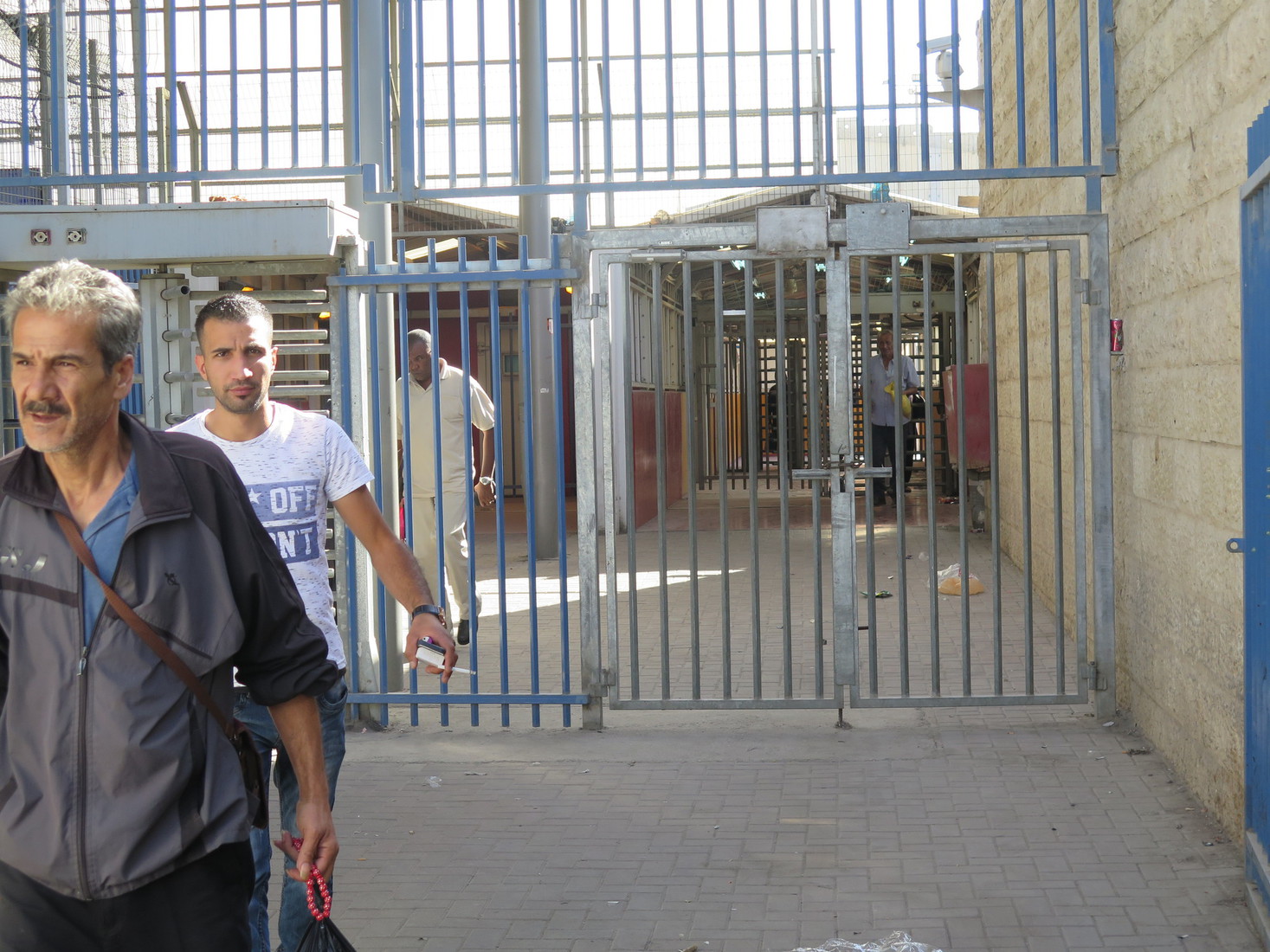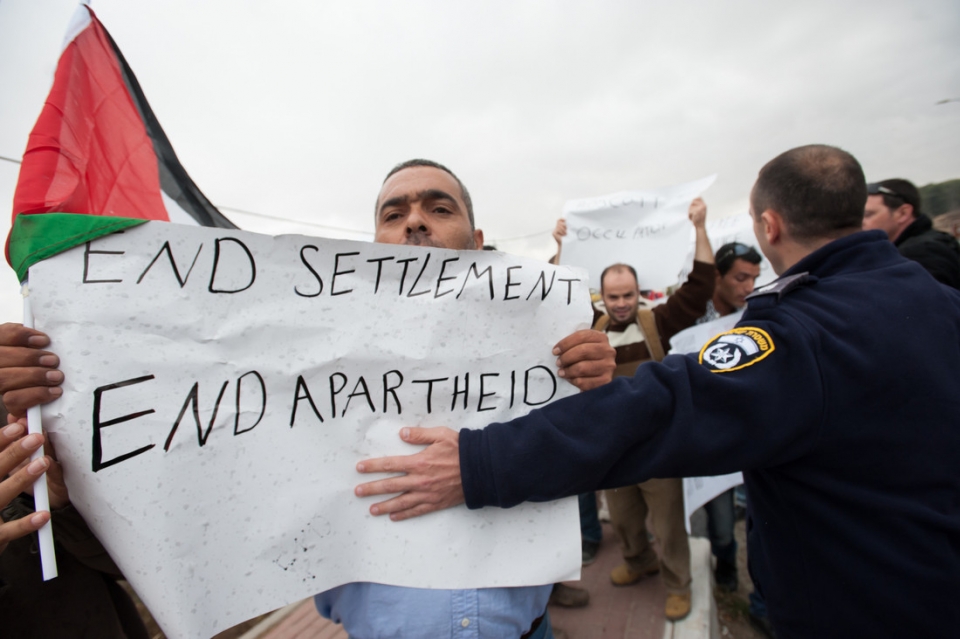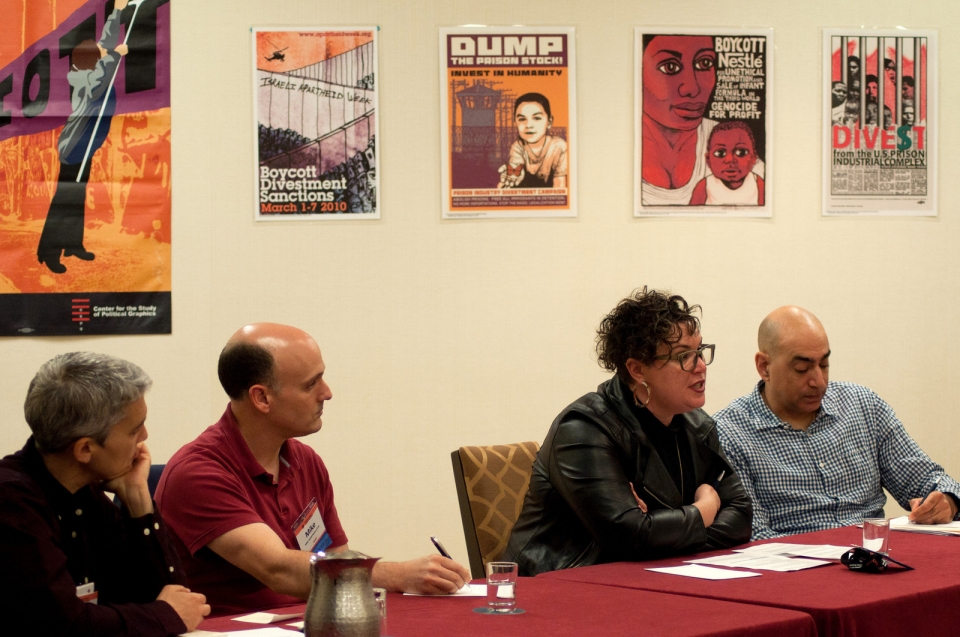
Under the occupation, Palestinians are denied their human and civil rights. Their freedom of movement is severely limited by permanent checkpoints, roadblocks, gates, closed roads, barriers, and the separation wall. Mike Merryman-Lotze / AFSC
Throughout our history, AFSC has stayed true to our belief that there is “that of God” in every human being. Because of that, we have stood with communities facing oppression and violence around the world, opposing such evils as segregation, collective punishment and incarceration, colonization, economic exploitation, and genocide.
We now continue our legacy of speaking truth to power in Israel, the occupied Palestinian territory, and around the world. We see our economic activism as a nonviolent witness against injustice.
That's why AFSC supports the Palestinian-led boycott, divestment, and sanctions (BDS) movement. Here's what you to know:
We believe that all people, including Palestinians, have a right to live in safety and peace and have their human rights respected.
For 51 years, Israel has denied Palestinians in the occupied Palestinian territory their basic civil, political, and human rights—in defiance of international law. Among other things, Palestinians don’t control their own economy, can’t travel without Israeli military permission, are denied access to religious sites, are restricted from accessing needed medical care, are denied educational opportunities, have their speech restricted, have their homes destroyed and their land confiscated, and can be arrested and detained indefinitely without charge or trial. The Palestinian BDS call seeks to change this situation using proven nonviolent social change tactics with support from the international community.
AFSC supports boycott and divestment campaigns that target companies complicit in the occupation.

Violations of Palestinians’ rights result not only from Israeli government policies and actions, but also from corporate and institutional policies and actions. Our position does not call for a boycott of companies simply because they’re Israeli or doing business in Israel. BDS campaigns target institutions that help sustain the occupation, not individuals.
BDS has proven effective as a nonviolent tool for realizing political and social change.
Economic activism is both an appeal to conscience aimed at raising awareness among those complicit in harmful practices and an effective tactic for removing structural support for oppression. Quakers pioneered boycotts in the 1800s, when they helped lead the “Free Produce Movement,” boycotting goods produced with slave labor. In the 1980s, AFSC answered the call for divestment from apartheid in South Africa. Supporting the call for BDS from Palestinians seeking freedom, equality, and justice is just as critical today.
Israel has denied BDS supporters entry to the country — part of a larger effort by the Israeli government to silence human rights and anti-occupation activists.
Over the past decade, the Palestinian-led BDS movement has succeeded in raising awareness about the occupation and changing the behavior of many corporations, such as Veolia and Unilever—even as the government of Israel has spent hundreds of millions of dollars to try to suppress this nonviolent effort. Tragically, in recent years, more Palestinian activists have faced arrest, threats, and imprisonment without charge or trial in response to nonviolent activism for human rights.
We’re also seeing attacks on BDS supporters in the U.S.

In recent years, numerous U.S. states have approved policies that bar businesses and organizations that support BDS from getting state contracts — a clear violation of protected free speech and action under the First Amendment. And in Washington, D.C., a number of unsuccessful efforts have been made to restrict people's right to engage in BDS activities. While the courts continue to overturn anti-BDS legislation when it is passed, continued activism is needed to protect speech and activists rights.
You can help.
- Visit our resource page on peace in Israel-Palestine to learn more about the occupation and how you can take action.
- To see a list of companies we recommend for divestment, visit our Investigate website.
- Join our Pillsbury Boycott Campaign.
- Read “5 ways to support Palestinians through boycott, divestment, and sanctions.”
- Read "Engaging Critics of BDS: A Resource for Activists," created by the Quaker Palestine-Israel Network to serve as a tool for BDS activists to help counter some often encountered arguments from critics of BDS.
- Learn more about AFSC's position by reading our "Principles for a Just and Lasting Peace between Israelis and Palestinians."